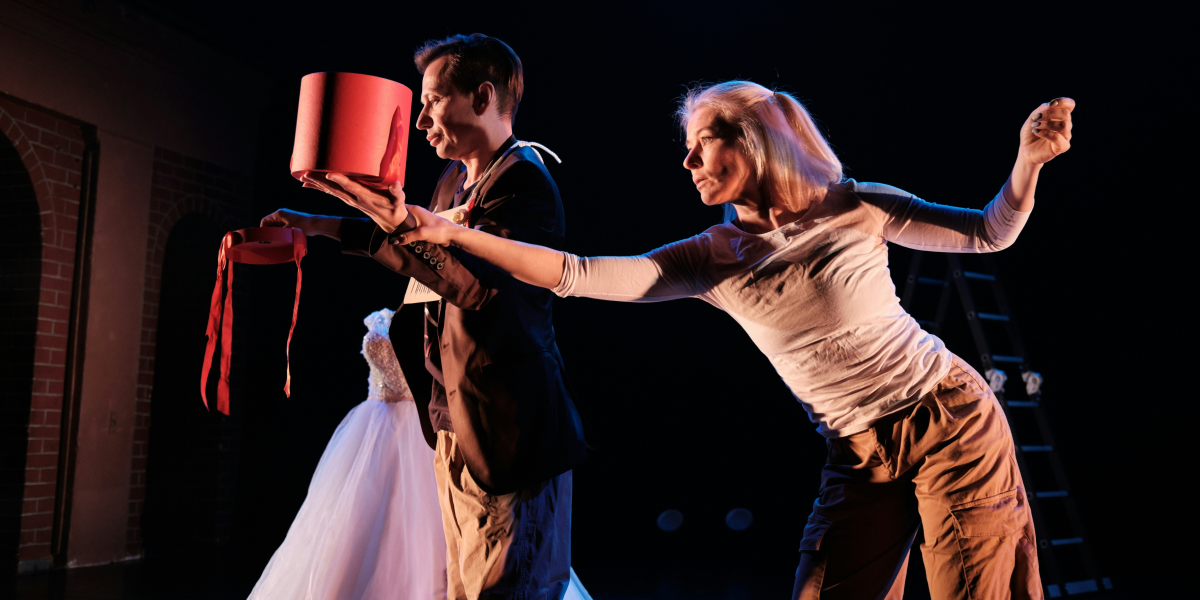Professional training in acting, singing, and dance can be essential for anyone hoping to make a career in the entertainment industry. Many successful actors, singers, and dancers attribute their skills to formal training, which builds confidence, hones talent, and prepares individuals for the demands of their craft. For aspiring stars, structured training offers the opportunity to gain critical skills and develop the resilience needed in such a competitive field.
Acting Classes: Sharpening Skills and Building Character
Acting classes give students the fundamental skills required to bring characters to life. From learning how to convey emotion to mastering body language and voice control, these classes teach actors the techniques to connect with an audience. Acting classes also introduce aspiring performers to various methods, such as Stanislavski’s system or the Meisner technique, allowing them to explore different styles and approaches.
These classes also help students understand the importance of character analysis, script interpretation, and stage presence, which are vital for success in film, theater, and television. Beyond technical skills, acting classes foster creativity, adaptability, and self-awareness. By practicing these skills, students become more confident performers and better equipped to handle various roles and performance environments.
Vocal Training: Strengthening the Voice and Building Performance Skills
Singing lessons are essential for aspiring singers and are often beneficial for actors. Professional vocal training teaches students how to use their voice correctly, preventing strain and ensuring career longevity. In addition to technique, vocal training focuses on breath control, pitch accuracy, and tone quality, all of which are critical for a polished, professional sound.
Through vocal training, students also learn how to project their voices effectively—a skill valuable in musical performances and non-musical acting roles. Singers are trained to perform under different conditions, learning techniques to reduce tension and build endurance. Additionally, students gain insight into different genres and styles of music, broadening their abilities to adapt to various roles or musical pieces.
Dance Classes: Enhancing Body Control and Expression
Dance is a key performance component, particularly in theater, musical productions, and film. Dance classes train aspiring performers in rhythm, coordination, and expressive movement, all contributing to stage presence and physical storytelling. Regardless of the specific dance style—ballet, jazz, or contemporary—learning dance allows performers to develop a physical awareness and fluidity that supports acting and singing.
These classes also teach discipline and endurance, as dance requires consistent practice to perfect techniques and routines. Physical conditioning in dance classes contributes to a performer’s overall fitness, helping them handle the physical demands of live performances or long days on set. For actors and singers, dance training can enhance their ability to embody characters fully and perform choreography, often required in musical theater and screen acting.
The Importance of Discipline and Resilience
One of the core benefits of professional training is the discipline and resilience it instills in young performers. Acting, singing, and dance classes all require commitment, regular practice, and the ability to work well under constructive feedback. This environment helps students develop strong work ethics and teaches them the importance of perseverance, whether facing auditions, challenging roles, or busy rehearsal schedules.
Learning to take feedback and work through critiques is essential in the entertainment industry. Performing arts classes emphasize resilience, as students learn to push through mistakes, try new approaches, and continually improve. These qualities prepare them for the industry’s ups and downs and help them focus on long-term goals.
Networking and Exposure to Industry Professionals
Professional training offers students opportunities to connect with experienced instructors and industry professionals. Many acting, singing, and dance schools bring in guest instructors, host workshops, and organize performances, giving students valuable exposure to the world they aspire to join. This access to industry insiders provides insights into the entertainment business and introduces students to potential mentors.
Classes and workshops also encourage collaboration with other aspiring performers, allowing students to build a network of peers. These connections are often vital for career growth, providing professional opportunities and a support system within a competitive field.
Confidence and Stage Presence: Standing Out in Auditions
Confidence is a significant asset in auditions and performances, and professional training builds this quality by allowing students to practice their skills regularly. Repeated exposure to performing in front of peers and instructors helps young artists overcome stage fright, preparing them for high-pressure situations like auditions. Acting, singing, and dance classes all provide students with the tools they need to feel self-assured in their abilities.
In addition, training in the arts helps performers develop stage presence, a quality that draws audiences in and makes performances memorable. Stage presence is cultivated through practice, feedback, and experience—elements that structured classes offer. With a strong stage presence, aspiring performers can stand out in auditions and captivate audiences, a crucial advantage in building a successful career.
Preparing for Diverse Career Paths in the Performing Arts
Professional training prepares aspiring performers for diverse careers in the arts, equipping them with versatile skills for various mediums, such as theater, film, television, and music. This adaptability broadens their job prospects and helps them meet the industry’s evolving demands. Early, comprehensive training gives students a solid foundation in performance, allowing them to build on mastered techniques and industry knowledge, positioning them for lasting success in the entertainment world.
Published by: Khy Talara














